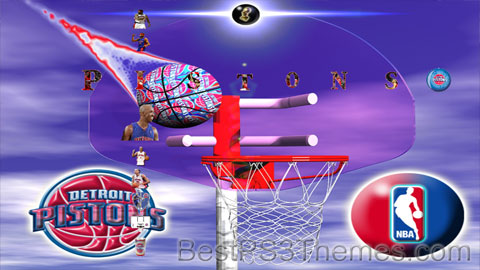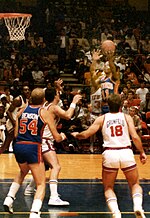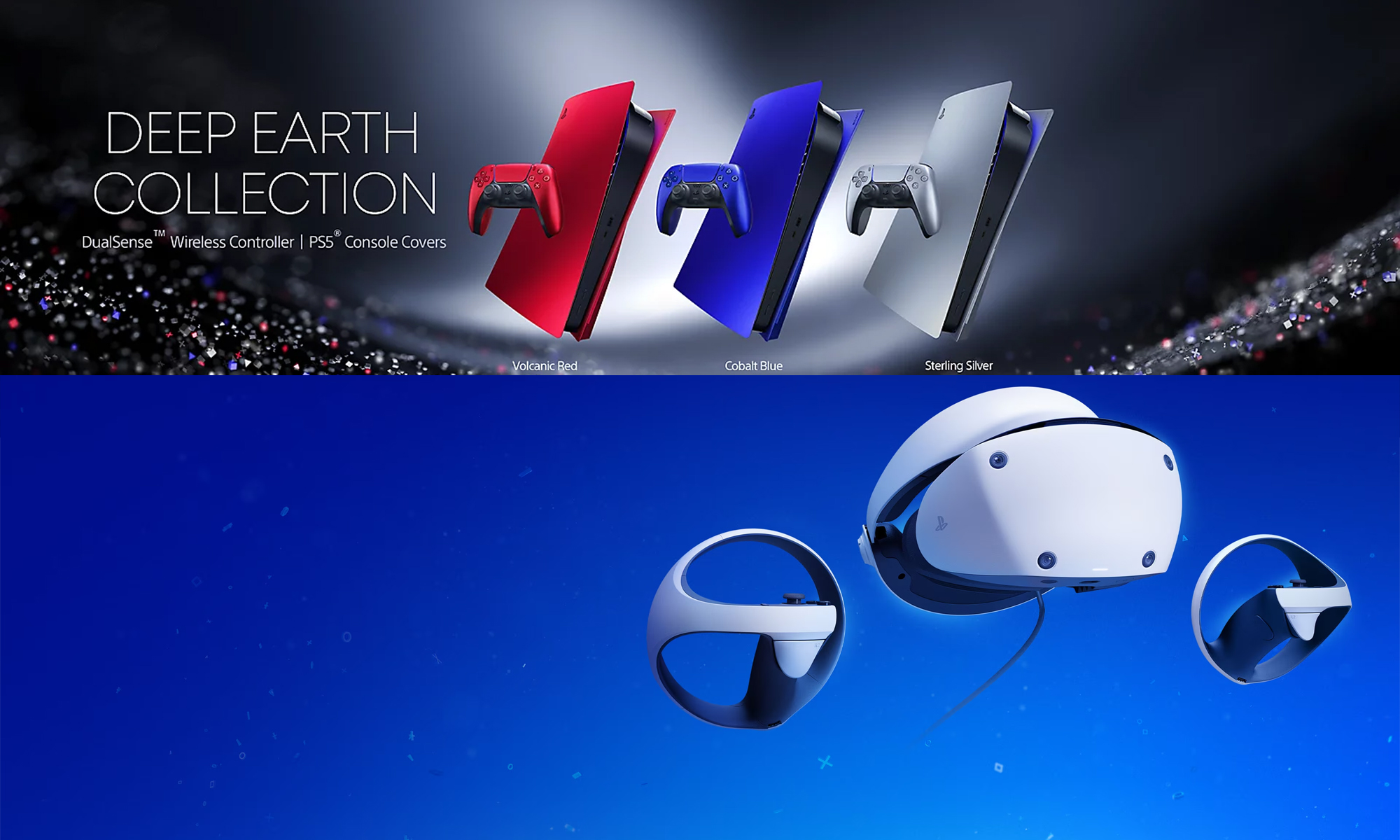Detroit Pistons theme by 1_BAD_SOLDIER
Download: DetroitPistons.p3t

(2 backgrounds)
| Detroit Pistons | |||
|---|---|---|---|
 | |||
| Conference | Eastern | ||
| Division | Central | ||
| Founded | 1937 | ||
| History | Fort Wayne Zollner Pistons 1937–1941 (semi-professional) 1941–1948 (NBL) Fort Wayne Pistons 1948–1957 (BAA/NBA) Detroit Pistons 1957–present[1][2][3] | ||
| Arena | Little Caesars Arena | ||
| Location | Detroit, Michigan | ||
| Team colors | Royal blue, red, chrome, black, white[4][5][6] | ||
| Main sponsor | United Wholesale Mortgage[7] | ||
| President | Trajan Langdon | ||
| General manager | Vacant | ||
| Head coach | Vacant | ||
| Ownership | Tom Gores | ||
| Affiliation(s) | Motor City Cruise | ||
| Championships | 5 NBL: 2 (1944, 1945) NBA: 3 (1989, 1990, 2004) | ||
| Conference titles | 5 (1988, 1989, 1990, 2004, 2005) | ||
| Division titles | 15 NBL: 4 (1943, 1944, 1945, 1946) NBA: 11 (1955, 1956, 1988, 1989, 1990, 2002, 2003, 2005, 2006, 2007, 2008) | ||
| Retired numbers | 11 (1, 2, 3, 4, 10, 11, 15, 16, 21, 32, 40) | ||
| Website | www | ||
| |||
The Detroit Pistons are an American professional basketball team based in Detroit. The Pistons compete in the National Basketball Association (NBA) as a member of the Central Division of the Eastern Conference. The team plays its home games at Little Caesars Arena, located in Midtown Detroit. The team was founded as the Fort Wayne Zollner Pistons, a semi-professional company basketball team based in Fort Wayne, Indiana, in 1937. The club would turn professional in 1941 as a member of the National Basketball League (NBL), where they won two NBL championships: in 1944 and 1945. The Pistons later joined the Basketball Association of America (BAA) in 1948. The NBL and BAA merged to become the NBA in 1949, and the Pistons became part of the merged league.[1][8] In 1957, the franchise moved to Detroit. The Pistons have won three NBA championships: in 1989, 1990 and 2004.
Franchise history[edit]
1937–1957: Fort Wayne (Zollner) Pistons[edit]
Fred Zollner owned the Zollner Corporation, a foundry that manufactured pistons, primarily for car, truck, and locomotive engines in Fort Wayne, Indiana.[9] In 1937, Zollner sponsored a semi-professional company basketball team called the Fort Wayne Zollner Pistons after he received a request from his workers.[10] In 1941, the Zollner Pistons shed their works team roots and joined the National Basketball League (NBL).[1] The Zollner Pistons were NBL champions in 1944 and 1945.[1] They also won the World Professional Basketball Tournament in 1944, 1945 and 1946.[11]
In 1948, the team became the Fort Wayne Pistons and jumped to the Basketball Association of America (BAA).[9] In 1949, Fred Zollner brokered the formation of the National Basketball Association from the BAA and the NBL at his kitchen table.[9]
There are suggestions that Pistons players conspired with gamblers to shave points and throw various games during the 1953–54 and 1954–55 seasons. In particular, there are accusations that the team may have intentionally lost the 1955 NBA Finals to the Syracuse Nationals.[12] In the decisive Game 7, the Pistons led 41–24 early in the second quarter before the Nationals rallied to win the game.[13][14] The Nationals won on a free throw by George King with 12 seconds left in the game.[13][14] The closing moments included a palming turnover by the Pistons' George Yardley with 18 seconds left, a foul by Frank Brian with 12 seconds left that enabled King's winning free throw, and a turnover by the Pistons' Andy Phillip in the final seconds which cost them a chance to attempt the game winning shot.[13][14] In the following season, the Pistons made it back to the NBA Finals. However, they were defeated by the Philadelphia Warriors in five games.[15]
1957–1981: Decades of struggles[edit]

Though the Pistons enjoyed a solid local following, Fort Wayne's small size made it difficult for them to be profitable, especially as other early NBA teams based in smaller cities started folding or relocating to larger markets.[1] After the 1956–57 season, Fred Zollner decided that Fort Wayne was too small to support an NBA team and announced the team would be playing elsewhere in the coming season. He ultimately settled on Detroit.[1] Although it was the fifth largest city in the United States at the time,[16] Detroit had not seen professional basketball in a decade.[1][17][18][19] They lost the Detroit Eagles due to World War II, both the Detroit Gems of the NBL (who became the Minneapolis Lakers) and the Detroit Falcons of the BAA in 1947, and the Detroit Vagabond Kings in 1949.[1][17][18][19] Zollner decided to keep the Pistons name, believing it made sense given Detroit's status as the center of the automobile industry.[1][9] George Yardley set the NBA single-season scoring record in the Pistons' first season in Detroit, becoming the first player to score 2,000 points in a season.[20][21]
The Pistons played in Olympia Stadium (home of the Detroit Red Wings of the National Hockey League (NHL) at the time) for their first four seasons, then moved to Cobo Arena beginning in the 1961–62 season.[19][22]
During the 1960s and 1970s, the Pistons were characterized by talented players including George Yardley, Bailey Howell, Dave Debusschere, Dave Bing, and Bob Lanier, questionable trades, and frequent coaching changes.[22][23][24][25][26][27] At one point, DeBusschere was the youngest player-coach in the history of the NBA.[25] Then a trade during the 1968–69 season sent DeBusschere to the New York Knicks for Howard Komives and Walt Bellamy, both of whom had their best seasons behind them.[25] DeBusschere became a key player in leading the Knicks to two NBA titles.[25] Howell had previously been dealt to the Baltimore Bullets in 1964 and former Pistons guard Gene Shue, who was the head coach of the Bullets at the time, assessed the Pistons thusly: "Detroit has the worst management in the league."[28][29] Howell would go to win two championships as a member of the Boston Celtics. Yardley, Lanier, and Bing all ended their Pistons tenure being traded away, frustrated with the direction and opportunities with Detroit.[30][31][32]
In 1974, Zollner sold the team to glass magnate Bill Davidson, who remained the team's principal owner until his death in 2009.[33][34]
The team had a winning season in 1971, having spent the 1960s below .500, and then had a brief period of sustained success in the mid-1970s, qualifying for the playoffs in four straight seasons (1974, 1975, 1976 and 1977).[35][36][37][38] Hope was then placed in Dick Vitale in 1978, the former head coach at the University of Detroit, but he was fired the following season, and the team limped into the 1980s with a 16–66 record in 1979–80.[39] The 1979–80 team lost its last 14 games of the season which, when coupled with the seven losses at the start of the 1980–81 season, constituted a then-NBA record losing streak of 21 games.[40]
Over time, Davidson became displeased with Cobo Arena, but opted not to follow the Red Wings to the under-construction Joe Louis Arena next door. Instead, in 1978, he moved the team to the suburb of Pontiac, where they played in the 82,000 capacity Silverdome, a structure built for professional football (and the home of the Detroit Lions at the time).[22][41]
1981–1994: The Isiah Thomas era[edit]
The franchise's fortunes finally began to turn in 1981, when they drafted point guard Isiah Thomas from Indiana University.[24] In November 1981, the Pistons acquired Vinnie Johnson in a trade with the Seattle SuperSonics.[42] They later acquired center Bill Laimbeer in a trade with the Cleveland Cavaliers in February 1982.[43] Another key move by the Pistons was the hiring of head coach Chuck Daly in 1983.[44]

Initially, the Pistons had difficulty moving up the NBA ladder. In 1984, the Pistons lost a tough five-game series to the underdog New York Knicks, 3–2.[45] In the 1985 playoffs, Detroit won its first-round series and faced the defending champion Boston Celtics in the conference semifinals. Though Boston prevailed in six games, Detroit's surprise performance promised that a rivalry had begun.[39] In the 1985 NBA draft, the team selected Joe Dumars 18th overall, a selection that proved to be very wise.[46] They also acquired Rick Mahorn in a trade with the Washington Bullets.[47] However, the team took a step backwards, losing in the first round of the 1986 playoffs to the more athletic Atlanta Hawks.[48] After the series, changes were made in order to make the team more defensive-minded.[39]
1986–1992: The Bad Boys[edit]
Prior to the 1986–87 season, the Pistons acquired more key players: John Salley (drafted 11th overall), Dennis Rodman (drafted 27th) and Adrian Dantley (acquired in a trade with the Utah Jazz).[49][50] The team adopted a physical, defense-oriented style of play, which eventually earned them the nickname "Bad Boys".[51]
In 1987, the team reached the Eastern Conference Finals against the Celtics. After pushing the defending champions to a 2–2 tie, the Pistons were on the verge of winning Game 5 at the Boston Garden with seconds remaining.[52][53] After a Celtics turnover, Isiah Thomas attempted to quickly inbound the ball and missed Chuck Daly's timeout signal from the bench. Larry Bird stole the inbound pass and passed it to Dennis Johnson for the game-winning layup.[52][53] While the Pistons did win Game 6 in Detroit, they lost the series in a tough Game 7 back in Boston.[52][53]


Motivated by their loss to the Celtics, the Pistons, aided by midseason acquisition James Edwards, improved to a then-franchise-record 54 victories and the franchise's first division title in 32 years.[39][54][55] In the postseason, the Pistons avenged their two previous playoff losses to the Celtics in the Eastern Conference Finals, defeating them in six games and advancing to the NBA Finals for the first time since the franchise moved to Detroit.[39]
The Pistons' first trip to the Finals in 32 years saw them face the Los Angeles Lakers, who were led by Magic Johnson, James Worthy, and Kareem Abdul-Jabbar.[15][39] After taking a 3–2 series lead back to Los Angeles, Detroit appeared poised to win their first NBA title in Game 6. In that game, Isiah Thomas scored an NBA Finals record 25 points in the third quarter while playing on a severely sprained ankle.[56] However, the Lakers won the game, 103–102, on a pair of last-second free throws by Abdul-Jabbar following a controversial foul called on Bill Laimbeer, referred to by many as a "phantom foul".[56][57][58] With Thomas unable to compete at full strength, the Pistons narrowly fell in Game 7, 108–105, as the Lakers became the first back-to-back NBA Champions since the 1969 Boston Celtics.[56][59]

Prior to the 1988–89 season, the Pistons moved to Auburn Hills to play at The Palace of Auburn Hills, the first NBA arena financed entirely with private funds.[60] The 1989 Pistons completed the building of their roster by trading Adrian Dantley for Mark Aguirre, a trade that Pistons fans criticized heavily initially, but later praised.[61][62][63][64] The team won 63 games, shattering their one-year-old franchise record, and steamrolled through the playoffs and into an NBA Finals rematch with the Lakers. This time, the Pistons came out victorious in a four-game sweep to win their first NBA championship. Joe Dumars was named NBA Finals MVP.[65]

The Pistons successfully defended their title in 1990, despite losing Rick Mahorn to the Minnesota Timberwolves in the expansion draft.[66][67] After winning 59 games and a third straight division title, the Pistons cruised through the first two rounds of the playoffs before playing a tough Eastern Conference Finals series against Michael Jordan, Scottie Pippen, and the Chicago Bulls. Facing each other for the third straight season, the Pistons and Bulls split the first six games before the Pistons finished the series with a decisive 93–74 victory in Game 7.[68][69][70] Advancing to their third consecutive NBA Finals, the Pistons faced the Portland Trail Blazers.[67] After splitting the first two games at The Palace, the Pistons went to Portland, where they had not won a game since 1974, to play Games 3, 4 and 5.[71] The Pistons won all three games in Portland, becoming the first NBA team to sweep the middle three games on the road.[72] The decisive game came down to the final second. Trailing 90–83 with two minutes remaining, the Pistons rallied to tie the game, then took a 92–90 lead when Vinnie Johnson sank a 15-foot jumper with 00.7 seconds left in the game; this shot earned Johnson a new nickname in Detroit, "007", to go with his original, "The Microwave".[67][73] Isiah Thomas was named NBA Finals MVP.[67]
The Pistons' championship run came to an end in the 1991 Eastern Conference Finals, as they were swept by the eventual NBA champion Chicago Bulls in four games.[74] The most critical injury during this time belonged to Isiah Thomas, who had suffered a wrist injury a few months prior to the NBA playoffs.[75] The Conference Finals is best remembered for the Pistons walking off the court in the last game just before it ended, willingly letting the final seconds tick away, unwilling to shake hands with the Bulls. After the series, Michael Jordan said, "You see two different styles with us and them. The dirty play and the flagrant fouls and unsportsmanlike conduct. Hopefully, that will be eliminated from the game. I think we play clean basketball. We don't go out and try to hurt people and dirty up the game. You never lose respect for the champions. But I haven't agreed with the methods they used. I think people are happy the game will get back to a clean game [with a Bulls triumph] and away from the 'Bad Boy' image."[76][77][78] It was later revealed that the real reason the Pistons walked off the court without shaking hands with the Bulls was due to comments said by Jordan in a pre-game interview before Game 4, where he said, "The Pistons are undeserving champions. The Bad Boys are bad for basketball."[79]
After getting swept by the Bulls, the Pistons traded James Edwards and waived Vinnie Johnson during the off-season.[80][81] In the
Comments are closed.
One Reply to “Detroit Pistons”

would you please make a Detroit Lions theme?